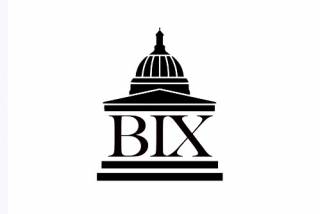
- Proposing a project: Points to consider
What kind of areas can you offer projects in?
Here is a list of some possible project areas:- behavioural science
- mental health
- nudge / influence
- decision making
- stereotypes
- diversity
- memory
- language / communications
- audience engagement
- risk
- consumer neuroscience
- behavioural change in health
- psychometrics / HR
- effective staff
- client feedback
- social bias
- non-verbal behaviour
- acoustic models (can be used diversely i.e. to predict disease, physiological or psychological, to finding acoustic predictors from first interactions that could predict eventual relationship decisions)
If there is a specific topic of interest that is not listed contact us anyway. We have several hundred scientists working across a huge range of areas.
Which Masters' programmes are involved with BIX?
Students from the following Masters' programmes will be offered the opportunity to work on the BIX projects:1. MSc Cognition and Decision Sciences
6. MSc Human-Computer Interaction
Students submit an application of interest and the student(s) with the most relevant skill set and interests is selected.
What should you do if you have a project proposal ready to submit?
Complete the Project Proposal Form. If you have any further questions about the Behavioural Insights Exchange initiative, please contact the administrative lead in the first instance, Pia Horbacki p.horbacki@ucl.ac.uk. You can also contact one of our academic leads: Dr Alicia Melis or Professor Nichola Raihani.What if an academic already has a contact in industry who may be interested in this scheme?
These pre-existing relationships are a perfect way to start a BIX project. You should contact Pia Horbacki for guidance or you can ask your industry contact to complete the Project Proposal Form.
- Responsibilities
Who will mainly be responsible for the day-to-day supervision of the project?
The industry supervisor will be mainly responsible for the day-to-day supervision of the project and must meet with the student at a minimum of 3 times in the academic year. This should be around November, February and May. The academic supervisor will also be providing guidance.Who can be an industry mentor?
This person must be a current employee of the company and should be someone who will remain as the contact for the duration of the project.Who selects students to work on the project?
Students from participating programmes can apply and the academic supervisor will be able to review and select the successful applicant(s). The academic supervisor is best placed to determine who will be the best candidate for the project.What can the student expect from their academic supervisor?
Each student will have a minimum of 3 meetings with the academic supervisor throughout the year. The academic supervisor monitors the project and provides assistance in the event of difficulties. The academic supervisor will read and provide feedback on one version of the student’s project proposal and on one draft of the student’s project write-up, as well as acting as the first marker for the project.Will the industry partner be expected to provide IT, software packages, and a working space?
If a project requires a student to use specialist equipment or software unavailable at UCL, then the partner company would need to provide this. Otherwise, students can use all software and facilities within their academic department. Industry partners do not need to provide a workspace unless needed.What if the project results are not what I expected?
Projects cannot guarantee a specific result. Methods cannot be changed if initial data does not provide the preferred/desired result.
- Terms of agreement
Are there any terms and conditions to consider?
Yes. We have a standard agreement that is used across UCL for this kind of collaboration with industry, which covers matters such as confidentiality and data protection. You will be asked to review and sign this contract which outlines the terms and conditions. This must be signed by the end of August before students are assigned to a project. Students will also be asked to sign an agreement.Are the terms and conditions of the contract flexible?
Unfortunately, we cannot amend the contract for individual projects. The terms and conditions are non-negotiable.Who will own the intellectual property?
The IP will be owned by our industry partner after the completion of the project. UCL will be allowed the use of this in any standard academic activity, but it excludes commercialisation. Our contract also ensures that our industry partners will view any submission to a journal or third party and has the right to ask for appropriate protection of their information and may object to publication based on the publication including the organisation’s confidential information or patentable material that requires protection, in which case:
(a) the University shall delete any identified Confidential Information from the Publication; and
(b) in the case of patentable material, delay publication for no more than three months to enable patent applications to be filed by the organisation.Will the student be able to submit a course assignment that contains the collected data, methods and results?
Yes, in accordance with the regulations of the University, subject bound by appropriate confidentiality obligations.Can students be prevented from publishing their findings?
No. We cannot enter into an agreement that completely prohibits our students from publishing their findings. We cannot agree to anything where the external organisation can indefinitely delay or prevent publication. Publication normally happens a long time after critical work is complete and used for whatever purposes it is needed. All published material can be viewed by the partner and can object to publication based on the publication including the organisation’s confidential information or patentable material that requires protection, in which case, you can request any confidential information to be removed or in the case of patentable material, delay the publication (for no more than three months) to enable patent applications to be filed by the organisation.Will the student or the University be able to publish the research or present at a conference?
Yes. However, the organisation will have an opportunity to review this and to also request any confidential information to be removed or in the case of patentable material, delay the publication (no more than 3 months) to enable patent applications to be filed by the organisation. Any publications made by the University shall include an appropriate acknowledgement of the organisations contribution to the project.Does personal information ever get released?
We cannot release personal data under GDPR except when it is legally required (i.e. FOIA, certain ethic audits, etc). We acknowledge that organisations will also be subject to FOIA requests. Our research guidelines require us to collect the absolute minimum personal data necessary for the experiment. Typically, we do not collect personal information in experiments unless it is needed for the experiment (e.g. if it is an experiment about mental health, some personal mental health data will need to be collected). So, the specifics of the personal information in any given project depend on the project.
- Deliverables and what to expect
What can an industry partner expect from the student at the end of the project?
The student(s) will deliver either one short presentation or one short report. The report will be approx. 2-3 pages and will include a front page with an executive summary. This is usually submitted by the end of September.If there are multiple students working on one project, how many final executive reports / presentations will be submitted?
If there are multiple students working on one project only ONE presentation / report will be submitted to our industry partner.How many hours will the student be expected to spend on the project?
The student will be expected to spend no more than 600 hours on the project. This should include time in meetings, reading and researching around the topic, experiment design, data collection, project write-up etc. We advise our students to focus on the dissertation write up around the end of July and it's therefore usual that communication from the student will slow down or stop at this point.What is the difference between a BIX project and a traditional, lab-based research project?
The main difference is that students on a BIX project have the ability to work on a real-world problem rather than a lab based problem. With a traditional project, the student tends to work mainly with their academic supervisor. With a BIX project, the student will work mainly with the industry supervisor. The student may also be required to work onsite, within the company and to produce either a presentation or a short report (for the industry partner), whereas students doing traditional projects are not required to do this.What tools do students have access to?
- Electroencephalography (EEG)
- Magnetic resonance imaging (MRI)
- Functional Near Infrared Spectroscopy (fNIRS)
- Eye tracking
- Biometrics (heart rate, electrodermal activity)
- Motion tracking
- Psychophysics
- Online behavioural testing
- Causal modelling
- Advanced multivariate statistical approaches
- Computational modelling
- AI/machine learning approaches
- Fees
What happens to the £1000 research fee and £1500 project admin fee?
Industry partners pay £1000 for research fees. This fund can be used by the student assigned to the project for any research expenses i.e. paying participants for testing. The additional £1500 project admin fee is used to help fund 2 PhD scholarships. If you offer more than one project in one academic year, you will only pay the project admin fee once. If you offer a project in another academic year, this fee will apply again.When should payment for the project costs be made?
The payment will be made in 2 instalments. Half in December/January and half in August/September.
- BIX Contacts
Who makes up the BIX team?
Dr Alicia Melis, Prof Nichola Raihani and Pia Horbacki (Enterprise Manager/admin lead).What should you do if you have further questions?
If you have any further questions about the Behavioural Insights Exchange initiative please contact the administrative lead in the first instance, Pia Horbacki.
You can also contact one of the academics leads, Dr Alicia Melis or Professor Nichola Raihani.
 Close
Close


